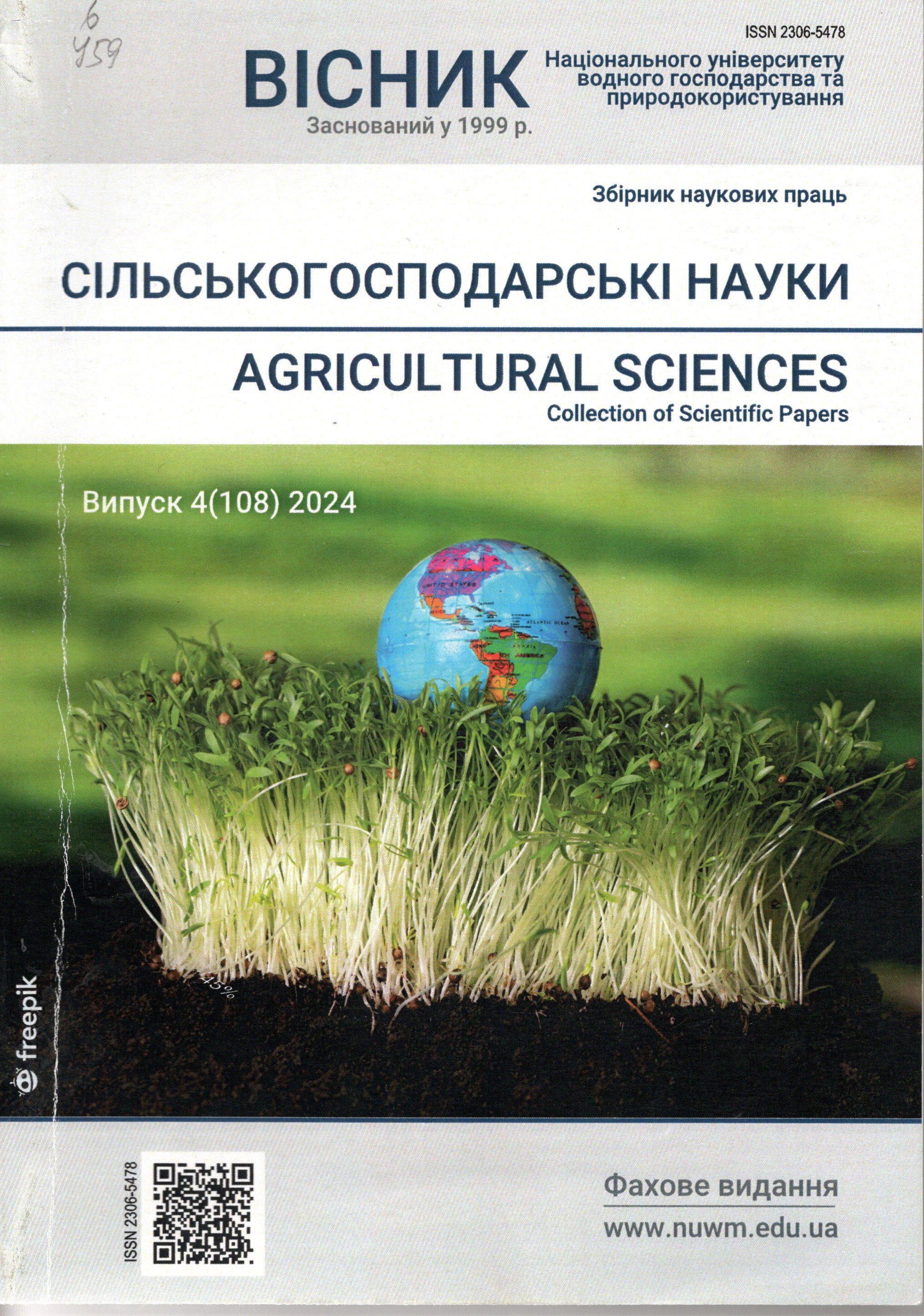BIOLOGICAL METHOD OF APPLE TREES PROTECTION AGAINST GRAY APPLE APHID
DOI:
https://doi.org/10.31713/vs420247Keywords:
apple plantations, biopreparations, phytophages, gray apple aphid, technical efficiencyAbstract
The technical effectiveness of the use of biological preparations to protect apple trees from gray apple aphid in 2021–2022 was investigated in the conditions of the Western Forest Steppe of Ukraine. Research has established that biological preparations have shown effectiveness against gray apple aphid in the range of 35.3–61.3%. In particular, the highest efficiency in the "pink bud" and "fruit formation" phenophases was obtained with the use of the preparation Biospectr BT, p. (10.0 l/ha) – 56.4% and 61.3%, respectively, and in the phenophase "fruit growth" (fruit the size of a walnut) the most effective effect was Bitoxybacillin BT, p. (5.0 l/ha) – 60.0%. Therefore, it is these preparations that are recommended to be used in apple tree protection systems against pests in the conditions of the Western Forest Steppe of Ukraine to combat the gray apple aphid. The effectiveness of the preparation Actofit BT, k.e. in the norm of 2.0 l/ha was 41.1–52.8%, in the norm of 3.0 l/ha – 41.8–53.4%, and in the norm of 4.0 l/ha – 44.4-56.8%, the yield of apple fruits using this preparation was 11.8–11.9 t/ha. The effectiveness of the preparation Boverin BT, p. in the norm of 20.0 l/ha, it was 44.7–52.2% with a yield of 12.2 t/ha. The effectiveness of the preparation Metarizin BT, p. in the norm of 4.0 l/ha was in the range of 33.5–35.3%, and the productivity of the apple tree was at the level of 11.7 t/ha, which was the lowest among the studied biological preparations. The use of a mixture of Boverin BT, p. (10.0 l/ha) and Metarizin BT, r. (3.0 l/ha), which made it possible to obtain efficiency in the range of 56.4–64.1%, which is 8–30% higher than when these preparations are used separately. The yield for the application of the mixture of the studied preparations was 12.0 t/ha. The effectiveness of the preparation Bitoxibacillin BT, p. in the norm of 3.0 l/ha was 43.1–55.0%, in the norm of 4.0 l/ha – 46.4–58.7%, and in the norm of 5.0 l/ha – 49.2–60.0%, with a yield of 11.9–12.1 t/ha. The effectiveness of the preparation Biospectr BT, p. in the norm of 3.0 l/ha was 50.1–58.9%, in the norm of 6.0 l/ha – 53.2–60.7%, and in the norm of 10.0 l/ha – 56.4–61.3%. The yield of apple orchards when using this preparation was 12.0–12.2 t/ha.Downloads
Published
2025-11-07
Issue
Section
Articles

